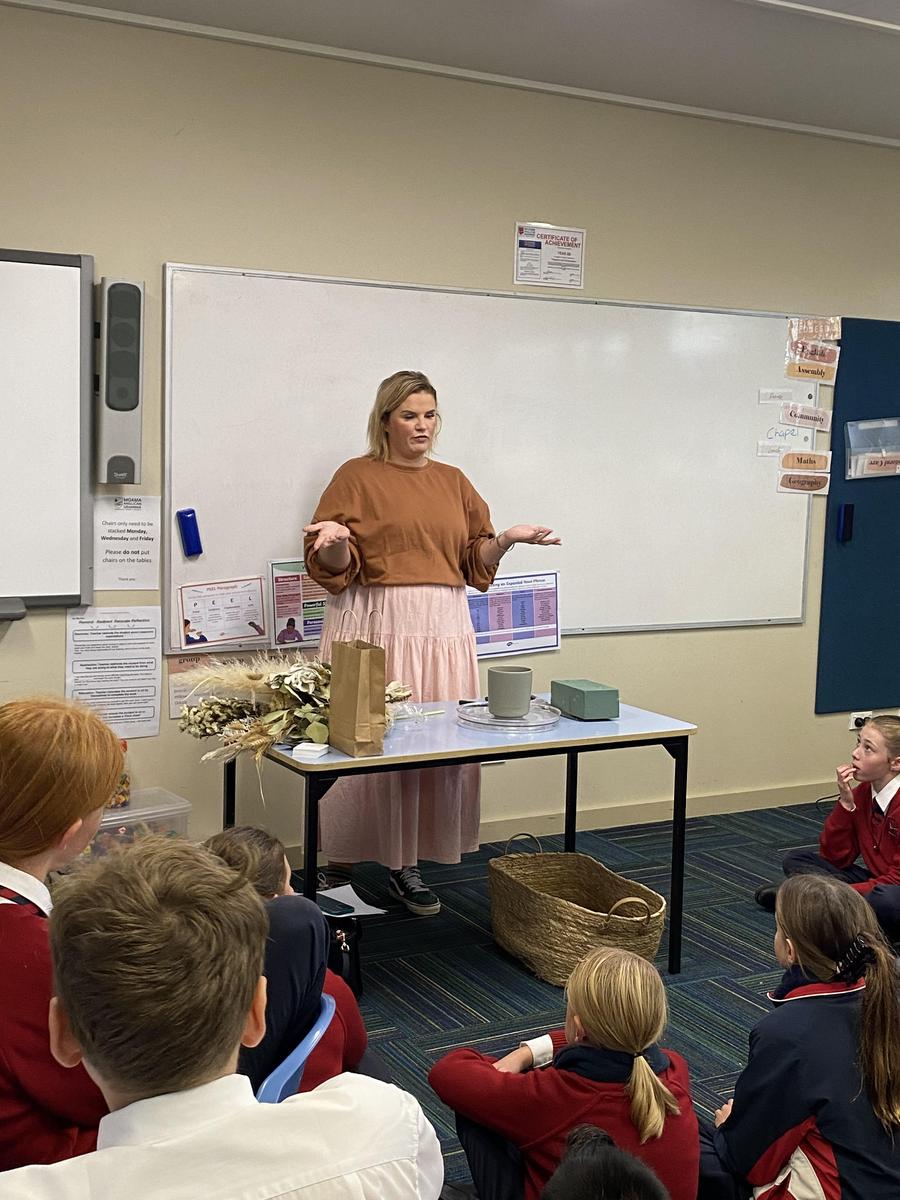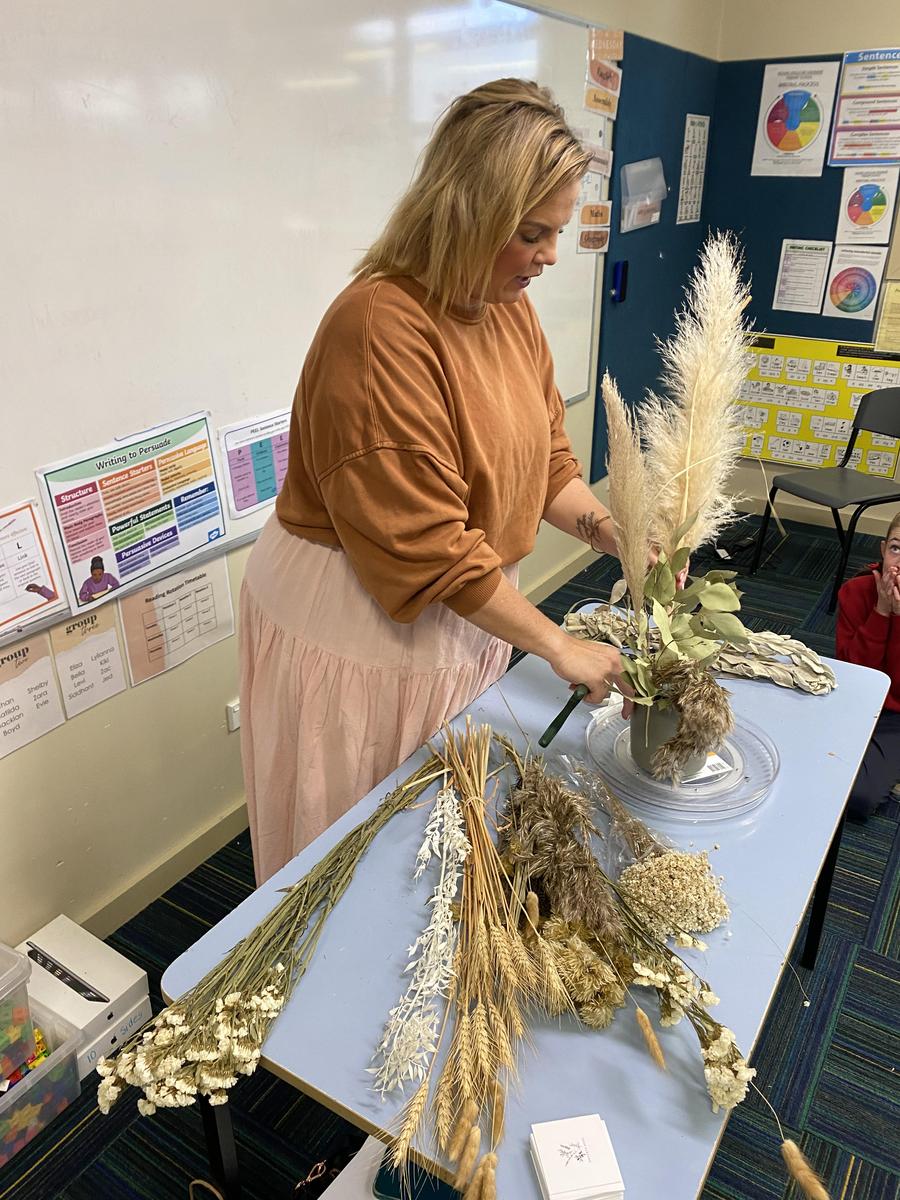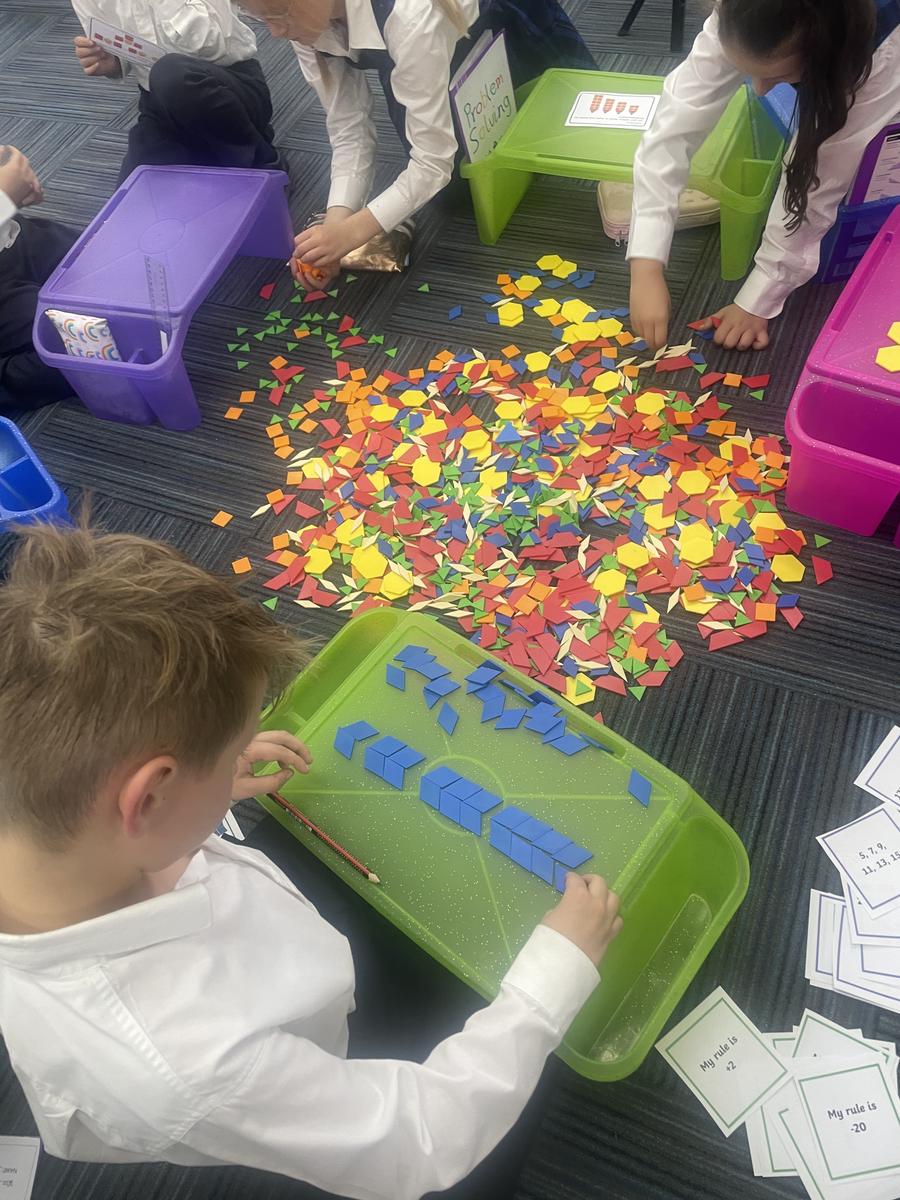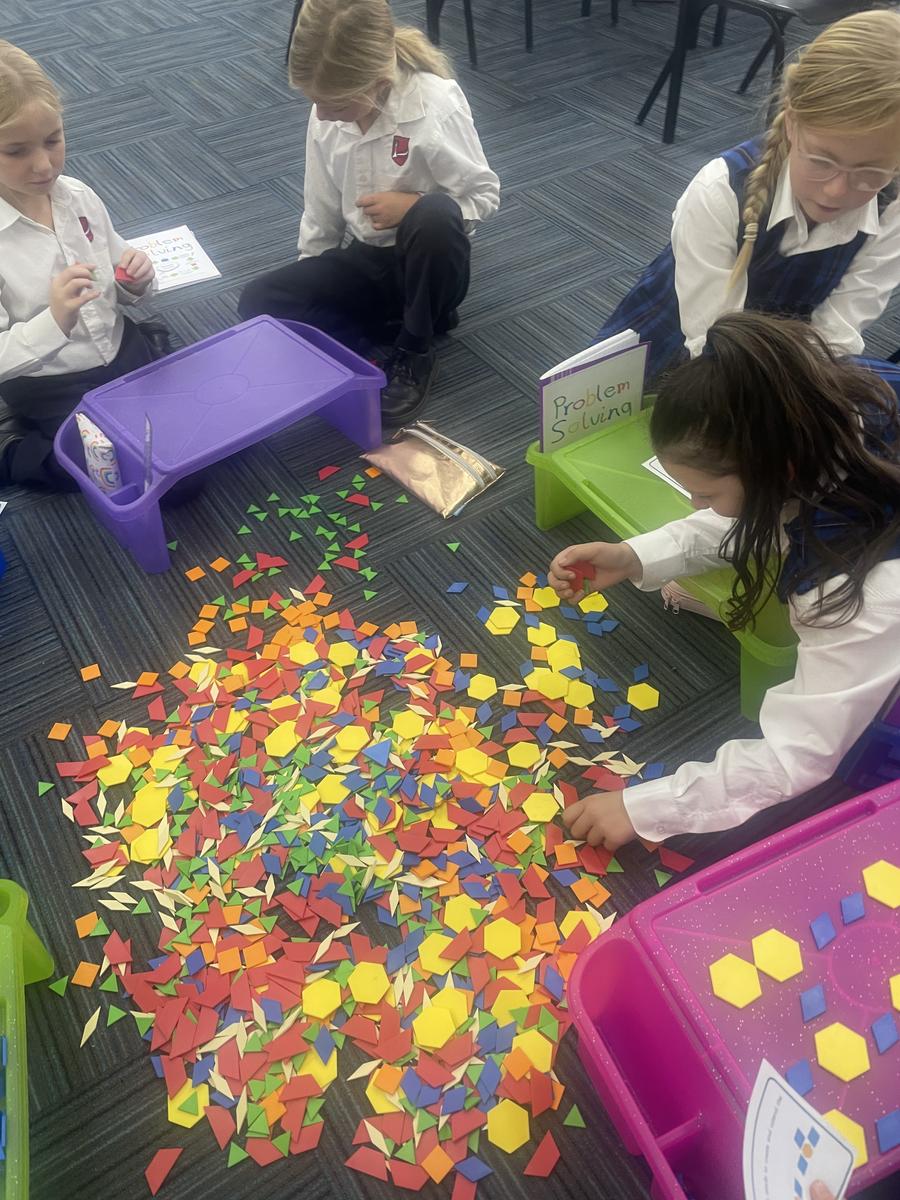Primary
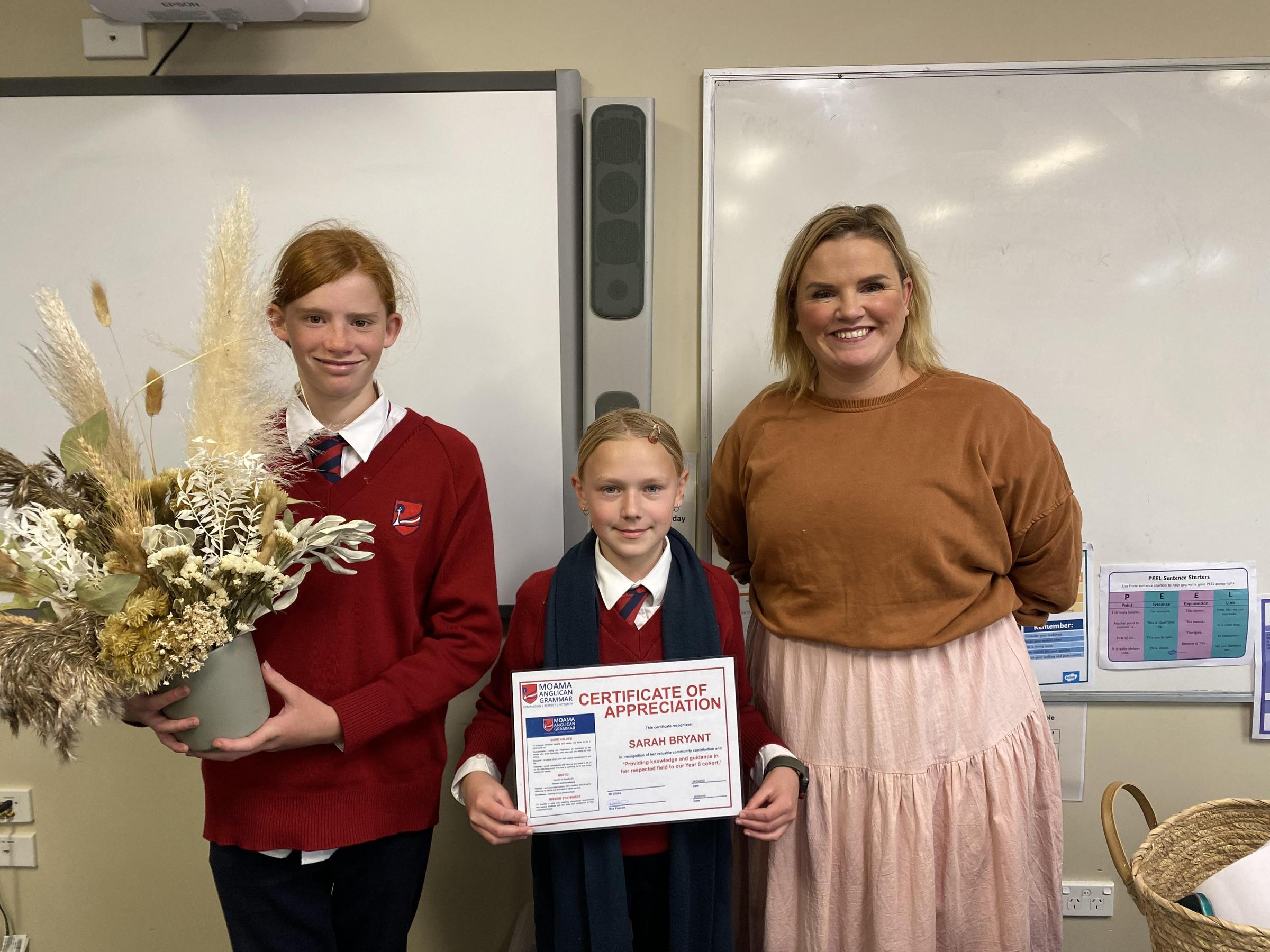
From the Primary Office
As we reflect on this last week, we are incredibly proud of the resilience and adaptability all students, staff, parents and community members have shown during the recent lockdown 4.0. As with previous lockdowns, they often get imposed without much prior warning. Staff should be commended on their ability to move from onsite learning to Quality Distance Learning in the blink of an eye. Their commitment to their students is always at the forefront of their minds. We feel privileged to work with such high caliber of professionals.
This lockdown has meant that some of our planned school activities had to be postponed. When re-scheduling these activities, we certainly consider other school events, including co-curricular activities, however, doubling up of activities is not always preventable. As always, we thank all our families for their understanding and support.
We would like to remind all our families that we are a COVID Safe School and when entering any of the school buildings or classrooms, parents are required to scan in via the provided QR Code. These can be found in the Primary School office and on classroom doors. In addition, parent volunteers are required to sign in at the Primary Office as per our normal process. Parents collecting their child whilst waiting outside the classrooms are not required to sign in.
Do It For Dolly Day
Raising awareness for Do It For Dolly Day is about bringing the community together to celebrate kindness and unite in taking a stand against bullying. “By coming together and getting behind the cause, people will encourage their mates to do the same and, before long, everyone will feel brave enough to speak out against bullying,” says Dolly’s father, Tick Everett.
Online bullying can have a devastating impact on young people, whose online life is a key part of their identity and how they interact socially. Cyberbullying behaviour takes many forms, such as sending abusive messages, hurtful images or videos, nasty online gossip, excluding or humiliating others, or creating fake accounts in someone’s name to trick or humiliate them.
Many parents feel teaching their kids about online safety is important, but they don’t quite know how to go about it. We have included some helpful links to support parents in having further discussions with their child/ren about the relevant and important topic of online safety and bullying.
https://www.esafety.gov.au/parents/big-issues/cyberbullying
https://dollysdream.org.au/parent-hub
School Photos Re-scheduled
Please note that the School Photo Day has been re-scheduled for Friday 11 June. All students in the Primary School will have their individual photo taken and in addition, traditional class photos will be taken as well.
Students are required to wear their full Winter Uniform, regardless of their timetable on this day. Arrangements will be made for those students participating in PDHPE or Sport.
Young Performers Concert
Next Thursday evening will see some of the many talented musicians we have in the Primary School perform for the community at the Young Performers Concert. We have a variety of acts for your entertainment which include soloists on the piano and violin, the strings ensemble, Junior Rock Bands, Junior Choir and the Junior Drumline. The students are very excited about being able to perform their pieces as they have all been practicing very hard. The evening will commence at 6.30pm on Thursday 10 June.
Years 5/6 Public Speaking Competition
Moama Anglican Grammar is participating in the Co-Curricular Lion’s Club Junior Public Speaking Competition, which is to be held on Sunday 20 June at Echuca College. This competition gives students in Primary Schools the chance to develop their ability to speak in public. This competition is run for Primary students in Years 3 to 6.
On Thursday 27 May, students in Year 5 and Year 6 participated in an internal school competition. Their topic was ‘The Environment - how is it effecting our Planet, our Native Wildlife, what can we do to improve it?’ Congratulations to Zara Hensley, Toby Kennedy and Charlotte Moller for being excellent competitors on the day. Congratulations to Hesandu Ambalangodage for being selected to represent the school at the competition later this term.
On Friday 4 June, the Year 3 and Year 4 students had the opportunity to speak in front of judges, made up of staff and Year 12 students, at the internal school competition about their chosen topic ‘Volunteering in the Community - tell us about a Volunteer Organisation in your Community, what they do and why you would like to be part of that organisation.’ Matthew Maxwell, Vihara Konara, Ryder Roussis, Harlow McCallum and Heidi McIntosh should be commended for their excellent research skills and delivery of their speech. Congratulations for Keisha Hall for making it to the next round at Echuca College.
Year 5 Production
Due to ongoing COVID restrictions, the School has made the decision to reschedule the Year 5 Production of Dragon Days to the last week of Term 3, Wednesday 15 September.
We understand that students have been working incredibly hard to bring this Production to life and we aim to have students shine in front of their family. With the current restrictions in place, we would have to limit ticketing which impacts the number of family members each student would be able to invite.
Nici Deller Mel Scott
Head of Primary Head of Teaching and Learning Primary
Bringing the Community in to the Classroom
As part of our “Bringing the community into the classroom” unit, the Year 6 cohort had Sarah Bryant from Bryant Buds visit. Sarah spoke about the opportunities in the local community she has had, and the ins and outs of working as a florist. She also made a beautiful arrangement while the students watched. She has just recently opened her own shop which is located in the port, and has up to seven people working for her at a time, which is a huge jump from when she worked by herself in a caravan in her backyard - hard work pays off!
Literacy Corner with Brooke Barber
Primary Literacy Coordinator
Building Your Child’s Vocabulary
Beginning readers use knowledge about words to help them make sense of what they are reading. The more words a reader knows, the more they are able to comprehend.
Talking to and reading with your child are two terrific ways to help them hear and read new words. Conversations and questions about interesting words (“The book says, ‘The boy tumbled down the hill,’ and look at the picture! How do you think he went down the hill?”) are easy, non-threatening ways to get new words into everyday talk.
Sharing a new word with your child does not have to take a long time: just a few minutes to talk about the word and then focus back on the book or conversation.
Choose only a few words to talk about – choosing every new word might make reading seem like a chore. The best words to explore with your child are ones that are common among adult speakers but are less common to see in the books your child might read.
When introducing new words to your young learner, keep the following four helpful hints in mind:
1. Provide a simple, child-friendly definition for the new word: Enormous means that something is really, really big.
2. Provide a simple, child-friendly example that makes sense within their daily life: Remember that really big watermelon we got at the grocery store? That was an enormous watermelon!
3. Encourage your child to develop their own example: What enormous thing can you think of? Can you think of something really big that you saw today? That’s right! The bulldozer near the park was enormous! Those tires were huge.
4. Last, keep your new words active within your house. Over the next few days and weeks, take advantage of opportunities to use each new vocabulary word in conversation.
Take the time to share new words and build your child’s vocabulary.
You’ll be enormously glad you did!
https://www.readingrockets.org/article/building-your-child-s-vocabulary
Numeracy Corner with Stacey Briggs
Primary Numeracy Coordinator
Eleven games and activities for parents to encourage maths in early learning
Before beginning official schooling, parents can give their young children a boost in learning mathematics by noticing, exploring and talking about maths during everyday activities at home or out and about.
New research shows that parents play a key role in helping their children learn mathematics concepts involving time, shape, measurement and number. This mathematical knowledge developed before school is predictive of literacy and numeracy achievements in later grades.
What parents can do to promote maths every day
Discussing and exploring mathematics with children requires no special resources. Instead, what is needed is awareness and confidence for parents about how to engage.
However, our research shows that one of the biggest barriers to this is parents’ lack of confidence in leading maths education at home.
Through examining international research, we identified the type of activities that are important for early maths learning which are easy for parents to use. These include:
1. Comparing objects and describing which is longer, shorter, heavier, or holds less.
2. Playing with and describing 2D shapes and 3D objects.
3. Describing where things are positioned, for example, north, outside, behind, opposite.
4. Describing, copying, and extending patterns found in everyday situations.
5. Using time-words to describe points in time, events and routines (including days, months, seasons and celebrations).
6. Comparing and talking about the duration of everyday events and the sequence in which they occur.
7. Saying number names forward in sequence to ten (and eventually to 20 and beyond).
8. Using numbers to describe and compare collections.
9. Using perceptual and conceptual subitising (recognising quantities based on visual patterns), counting and matching to compare the number of items in one collection with another.
10. Showing different ways to make a total (at first with models and small numbers).
11. Matching number names, symbols and quantities up to ten.
Phillipson, S., & Gervasoni, A. (2017). Eleven games and activities for parents to encourage maths in early learning. The Conversation. Retrieved 10 May 2021, from https://theconversation.com/eleven-games-and-activities-for-parents-to-encourage-maths-in-early-learning-76522.


